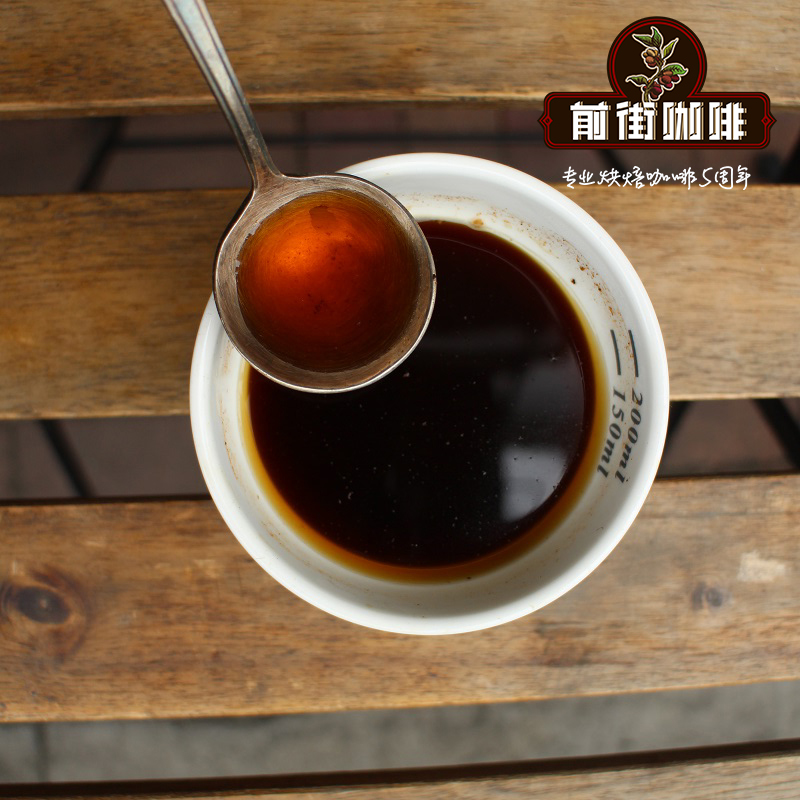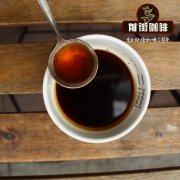Black Crystal Manor in Tanzania introduces the flavor of Tanzanian coffee and suggests that Tanzania hand brew.

Professional coffee knowledge exchange more coffee bean information please follow the coffee workshop (Wechat official account cafe_style)
Coffee is called Kahawa kahawa in Tanzania, although it is not as famous as Kenya in the coffee industry, but its annual output is almost the same as in Kenya. The main way to sell coffee is through competitive bidding and direct sales. The earliest Arabica seeds were introduced from R é union French Reunion Island and planted in the two producing areas of Bayamoyo and Mogoro. In 1893, beans planted on the slopes of Kilimanjaro became the most successful coffee beans. Other Arabica trees were introduced in western Tanzania from neighboring Burundi in the 1950s and are now mainly planted at high altitude. however, local wild coffee species continue to emerge, and the most recent discovery is in Coffea kihansiensis in the Udzungwa Mountains, whether Arabica, which was washed after July-December harvest, or Robusta, where native species were sunburned after harvest from April to November. The main producing areas are: Mara, Kilimazaro, Rovuma, Mbeya, Kighoma, Arusha, Manyala, Bukoba and Kagera. But Arabica beans account for nearly 75% of Tanzania's annual output, and Tanzania produces 50,000 tons of coffee a year.
Agriculture is an industry that Tanzania depends on. About 90% of the country's manpower is engaged in agricultural production, and agriculture accounts for 85% of exports. More than 90% of the main crops, including coffee, are grown by small farmers, cotton, tobacco, cashew nuts, tea and sisal. Until today, it is estimated that about 4.5 million of the population of 450000 small farmers, or 11 per cent of the country's population, depend on coffee cultivation for a living, producing nearly 90 per cent of the country's raw beans, and the remaining 10 per cent are supplied by cooperatives and larger estates.
Michael, the owner of Blackburn Estate in Tanzania, has been growing coffee in Germany for more than 20 years. Michael fell in love with the place when he first visited East Africa in 1971. In 1983, he moved to Tanzania for a long time and reorganized his parents' farm, when the coffee trees in Blackburn Estate were almost flooded by other trees, and a whole group of baboons lived in their house! It was not until Tanzania opened up its market in the late 1980s that Micahel began to study growing coffee. Black Crystal Manor is now an award-winning manor, not only because of the unique flavor of coffee, but also because of Michael's investment in the ecological conservation of the manor, the use of pesticides in the manor is organically grown coffee, and 80% of the land in the garden is planned for natural conservation. Wild animals are leisurely here, unfettered by fences-lions, buffaloes, elephants, cheetahs and a variety of other species travel through coffee trees and vast forests at night.
Coffee is grown at an altitude of about 1760-1950 meters above sea level. The actual coffee-growing area accounts for only 16% (about 187 acres) of the entire estate, and the large shade of native trees also provides the most sun-exposed shade, so there have recently been new coffee-growing areas to the east and south of the estate. in the future, these producing areas will mainly provide special hand-selected small batches of beans. Black Crystal Manor has a well-managed washing plant, which is fed by the high mountain springs of Oldeani Odini (which means bamboo shoot mountain in the local language), and all the coffee is dried on elevated scaffolding (so-called African elevated beds).
This is a kind of rough fiber made from tequila leaves, similar to jute bags, which are banned by the local government to protect the sisal industry in Tanzania, while sacks made of sisal do not have the special earthy smell of jute bags.
Property Characteristics: farm characteristics
Farm Farm name: Blackburn Estate Black Crystal Manor
Region producing area: West of Oldeani (Karatu District) west of Odini Mountain (Karatu area)
Country countries: Tanzania Tanzania
Altitude altitude: 1760 Murray 1900m
Rainfall annual rainfall: 870mm mm
Certification Certification: organic Organic
Shade Trees shade tree species: native trees
Water Source Water Source: the Alpine Spring of Oldeani Odini Mountain (the local language means Bamboo shoot Mountain)
It is suggested that the filter cup V60, the grinding degree of Fuji 3.5, the water temperature 90 °, the ratio of powder to water 1: 15, 15 grams of powder, 225 grams of water, the total cooking time is 2 minutes.
Professional coffee knowledge exchange more coffee bean information please follow the coffee workshop (Wechat official account cafe_style)
It is suggested that the filter cup V60, the grinding degree of Fuji 3.5, the water temperature 90 °, the ratio of powder to water 1: 15, 15 grams of powder, 225 grams of water, the total cooking time is 2 minutes.
Important Notice :
前街咖啡 FrontStreet Coffee has moved to new addredd:
FrontStreet Coffee Address: 315,Donghua East Road,GuangZhou
Tel:020 38364473
- Prev

Burundian Breer processing Plant introduces Burundian Coffee Flavor introduces Burundian hand-flushing parameters
For more information on coffee beans, please follow the coffee workshop (Wechat official account cafe_style) Burundi, a small African country sandwiched between Rwanda, the Republic of Congo and Tanzania. The history of coffee cultivation in Burundi began in the 1930s when coffee was introduced into the country by the Belgians. Since 1998, Burundi will produce coffee with NG
- Next

What are the benefits of drinking Panamanian coffee? What's so good about Panamanian coffee?
Professional coffee knowledge exchange more coffee bean information please follow the coffee workshop (Wechat official account cafe_style) Panamanian coffee tastes good? If you know where the coffee beans come from, you can roughly predict their flavor, so most packages indicate the original bean producing areas with conspicuous capital headings. From Kenya to Colombia, the conditions of different coffee producing areas, including climate and prosperity
Related
- Does Rose Summer choose Blue, Green or Red? Detailed explanation of Rose Summer Coffee plots and Classification in Panamanian Jade Manor
- What is the difference between the origin, producing area, processing plant, cooperative and manor of coffee beans?
- How fine does the espresso powder fit? how to grind the espresso?
- Sca coffee roasting degree color card coffee roasting degree 8 roasting color values what do you mean?
- The practice of lattes: how to make lattes at home
- Introduction to Indonesian Fine Coffee beans-- Java Coffee producing area of Indonesian Arabica Coffee
- How much will the flavor of light and medium roasted rose summer be expressed? What baking level is rose summer suitable for?
- Introduction to the characteristics of washing, sun-drying or wet-planing coffee commonly used in Mantenin, Indonesia
- Price characteristics of Arabica Coffee Bean Starbucks introduction to Manning Coffee Bean Taste producing area Variety Manor
- What is the authentic Yega flavor? What are the flavor characteristics of the really excellent Yejasuffi coffee beans?

